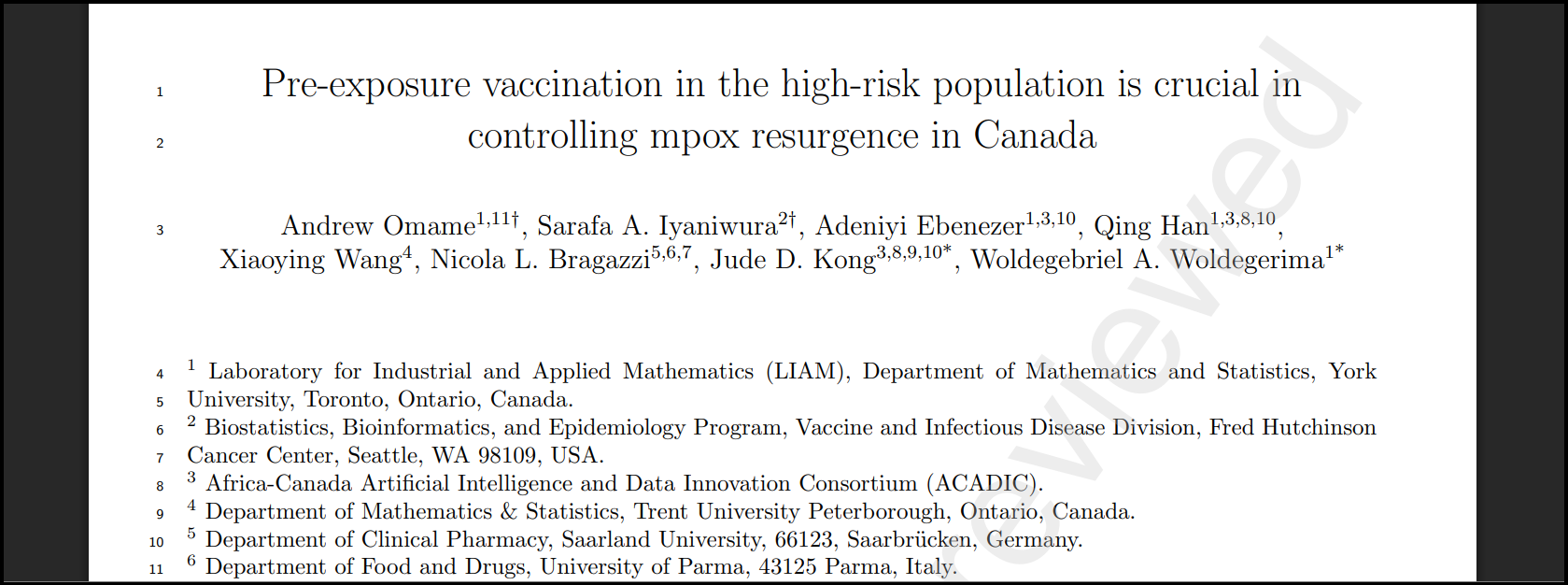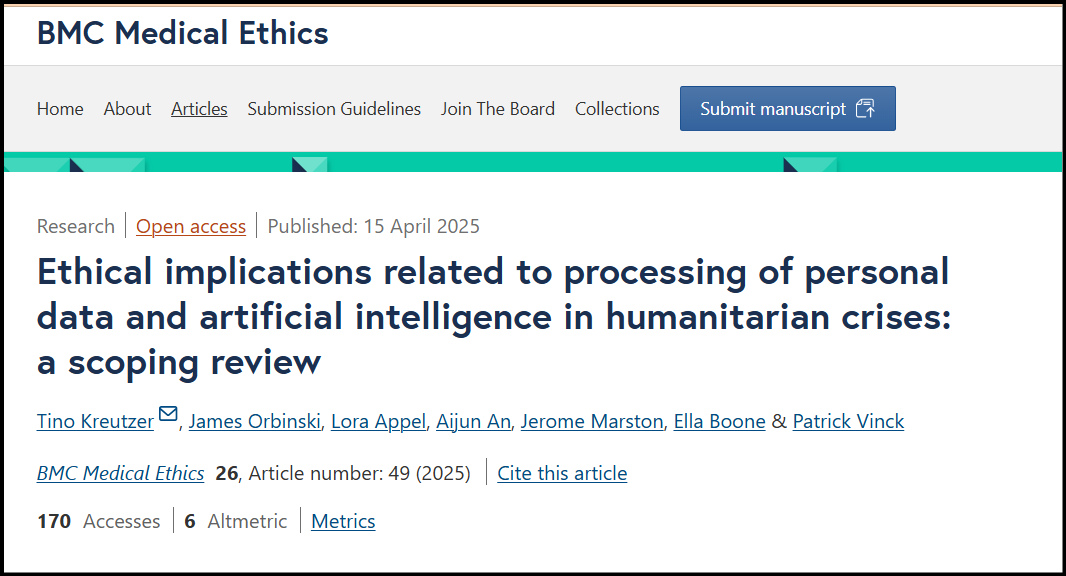
On April 10, 2025, Professors Jude Dzevela Kong and Woldegebriel Assefa Woldegerima, both Y-EMERGE members, were featured as co-authors in SSRN for their publication “Forecasting COVID-19 Indicators Using Spatial and Temporal Deep Learning Models.” The study explores the use of advanced deep-learning techniques to enhance the accuracy of COVID-19 trend forecasting across different regions. It underscores the potential of AI-driven models in supporting data-informed decision-making during public health emergencies. Read More

On April 10, 2025, Professor Jude Dzevela Kong was featured as a co-author in SSRN, contributing to the publication “Hierarchical Spatial Models for Pandemic Early Warning and Resource Allocation: A Case Study of COVID-19 in South Africa.” The study presents innovative spatial modeling approaches to strengthen early warning systems and improve resource allocation during public health crises. It highlights the value of incorporating geographic variability into pandemic preparedness strategies. Read More

On April 4, 2025, a recent publication in BMC Medical Ethics featured Professor Aijun An as a co-author in a comprehensive scoping review on bias in artificial intelligence (AI) models used in healthcare. The paper critically examines how bias can influence outcomes in AI-driven health systems and calls for stronger ethical safeguards to ensure equity and accountability. The study contributes to the ongoing dialogue around responsible AI development in medical contexts. Read More

On March 20, 2025, Professor Eric Kennedy, was featured in a York University announcement about a new research project funded by Natural Resources Canada (NRCan). The project, “Understanding and Improving Wildfire Mitigation Partnerships with Local Governments,” aims to help communities strengthen their wildfire resilience. The project will address challenges in wildfire mitigation and develop solutions to enhance preparedness across Canada. Read more
